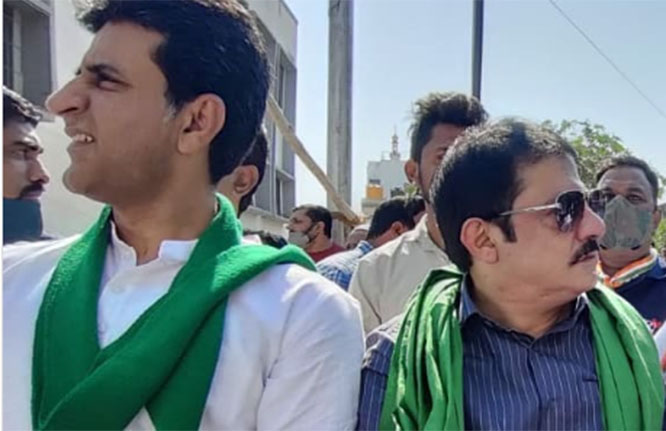New Delhi, Dec 29: As New Year festivities begin, cybercriminals based in China also have their own plans. They are targeting Indian e-commerce users with a new "year-end carnival, Get free Christmas gifts" scam, an investigation has revealed.
The scam is designed to make e-commerce users believe that Flipkart is offering an year-end carnival, although there is no such information this year on the e-commerce player's official website regarding such a carnival, New Delhi-based CyberPeace Foundation which conducted the investigation said on Monday.
The cybercriminals want to dupe e-commerce users into thinking that they can win a brand new OPPO F17 Pro smartphone.
The owner of the sites that are being shared via the social media platform, is not Flipkart Internet Private Limited.
It seems that the sites are registered in China, as per the investigation.
While the new scam bears many similarities to the Spin the Lucky Wheel Scam reported earlier, the new scam aims to also inject malware into the smartphones of users by asking people to install a third-party malicious app.
"There is a need for International cyber cooperation between countries to bust the criminal networks running the fraud campaigns affecting individuals and organisations to make the cyberspace resilient and peaceful," Vineet Kumar, President and Founder, CyberPeace Foundation, said in a statement.
"With the growing number of attacks and disruption in the cyberspace, countries are struggling with attributing attacks and fixing accountability which stands to be one of the major causes of concerns today."
The scam is new and is in the early stages of its lifecycle. There is a probability that this scam could reach a mass number of Indians by December 31 and could last well until the first week of January, according to CyberPeace Foundation.
Unlike Spin the wheel scam, the format of selecting winners is different this time.
On the landing page, a lucky draw section can be seen, on clicking the start button it shows "It's a pity that you didn't get the reward, you have 2 more chances" with an alert.
Also at the bottom of this page, a section comes up which seems to be a Facebook comment section where many users have commented about how much the offer is beneficial. All these comments and accounts are fake as per the investigation.
This scam is a much more malicious version of the earlier e-commerce scams as it aims to keep users engaged with fake popup alerts.
Every time a user clicks on the WhatsApp button on the scam website to share the link ahead with friends and family via Whatsapp a new tab opens on browser with a link.
It means if the user clicks on the link from a mobile device it will open the installed WhatsApp application on the phone.
Earlier reports showed that China-based hacking groups also targeted online shoppers during the record-breaking Flipkart festive season sales.







Comments
Add new comment